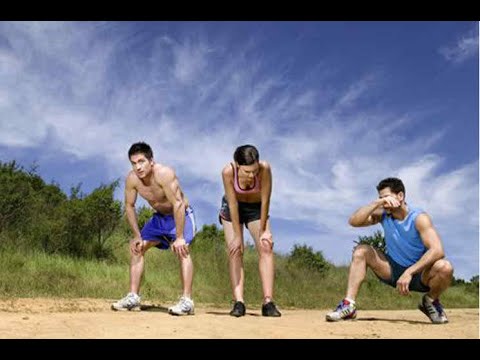How to Beat Marathon Muscle Cramps (Step By Step) With Images
How to Beat Marathon Muscle Cramps
The most commonly sustained injury when training for or running a marathon is muscle cramps. Cramps occur when the body runs out of energy, fluid and electrolytes or when the muscles overheat during exercise. Fortunately, cramps are preventable. Following a proper training regimen and marathon preparation can help you to achieve your goal of running a marathon without fear of cramps.
Perform stretching exercises. Stretching exercises are recommended to relieve the frequency and severity of muscle cramps. In the run up to a marathon, you should aim to do at least 5 to 10 minutes of stretching, three times per day.
As cramps are most frequently experienced in the calves, you should focus on stretching these muscles. One good calf stretch involves starting in a standing position about 60 – 90 centimeter (35.4 in) from the wall, keeping the soles of the feet flat on the floor.
Step forwards with one foot and lean your hands against the wall until you feel a stretch in the calf of your back leg. Hold for 10 to 15 seconds before switching to the other leg.
For more information on beneficial stretches, see this article.
Keep your legs in the correct position while sleeping. There are a couple of things you can try to prevent calf muscle shortening (and the resultant cramps) during sleep. These include:
Keeping the legs slightly elevated by placing a pillow under the feet while sleeping on your back.
Hanging the feet over the edge of the bed while sleeping on your front.
Hydrate properly before, during and after the run. Dehydration or the loss of fluids is the major cause of cramps. Therefore, it is essential to stay hydrated while you are training for a marathon, while you are running during a marathon and after the marathon is over.
Before training (or the marathon itself) it is recommended that you pre-hydrate by drinking only water – sports drinks will not benefit you at this stage, as no electrolytes have yet been lost. You should also avoid caffeinated drinks in the lead up to the race, as these have a diuretic effect that can lead to water loss.
Rehydrate with water during the first 60 minutes of exercise, and with a sports drink after 60 minutes of exercise. After an hour of exercise, your body loses energy and electrolytes which the sports drink helps to replace.
source



